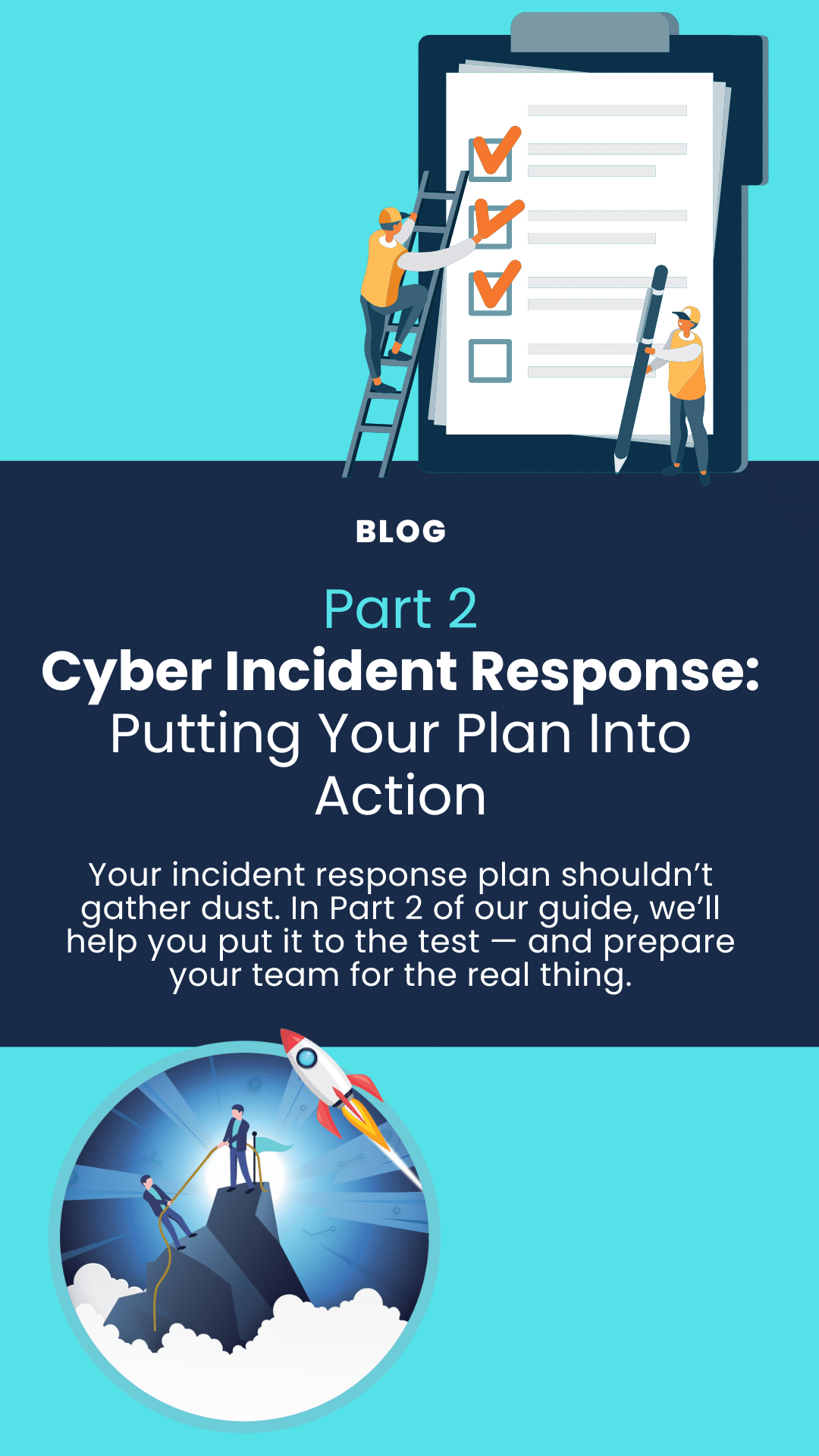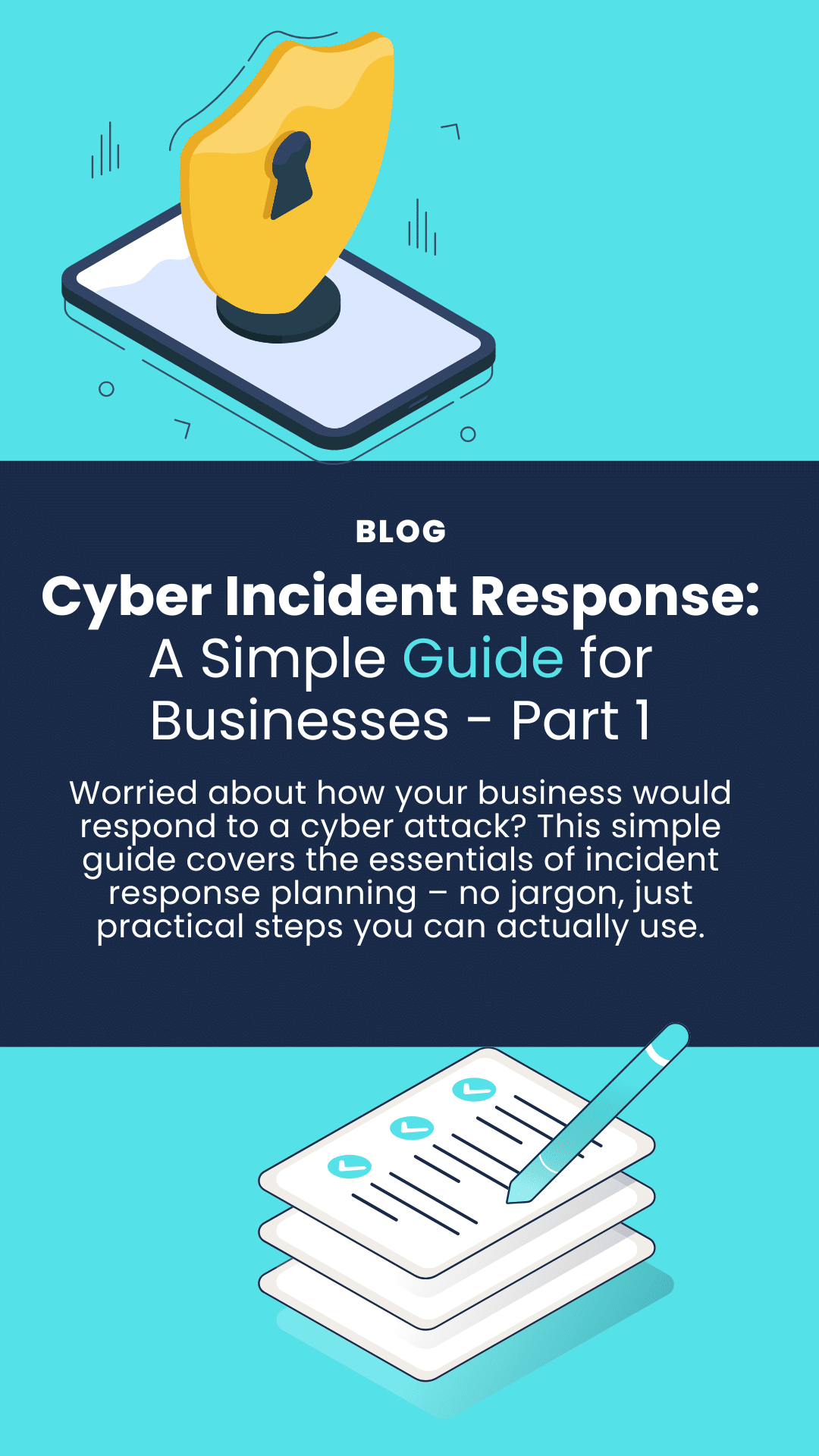Are you considering investing in a penetration testing service? Do you have any doubts about the process, or are you concerned about finding vulnerabilities and their consequences?
We’re here to provide you with the information you need to make an informed decision.
This will help you understand:
- The order of events if you find vulnerabilities during a test.
- Whether exploitation could cause disruption.
- What guidance you receive during and after vulnerability identification.
Vulnerability Assessment vs Penetration Testing:
Before we explore the consequences of finding security flaws, let’s first understand the basics of vulnerability assessment and penetration testing.


The Benefits of Penetration Testing and Vulnerability Assessments:
Both vulnerability assessment and penetration testing UK play crucial roles in safeguarding your organisation.
Here’s why they matter:
- Proactive Risk Mitigation: Identifying vulnerabilities in a controlled environment allows for swift remediation, reducing the chance of malicious exploitation.
- Compliance Requirements: Various industries mandate regular security assessments. Vulnerability assessment and penetration testing ensure your compliance with these standards.
- Enhanced Security Posture: These tests fortify your overall system security, making it more impervious to attacks.
CREST Penetration Testing: What Happens When Vulnerabilities Are Discovered?
There are several processes that occur when vulnerabilities are uncovered during the assessment and testing process:
- Documentation: The initial step is meticulous documentation. Every identified vulnerability is carefully recorded with specifics, potential impact, and supporting evidence. This documentation forms the cornerstone for accurate reporting and future actions.
- Report and Risk Assessment: A comprehensive report is thoughtfully crafted, detailing all identified vulnerabilities. The penetration testing team scrutinises each vulnerability's severity and potential impact, considering factors like the likelihood of exploitation, potential damage, and the importance of the affected system or data.
- Communication: Transparent communication is essential. The penetration testing team shares their findings with your management and relevant stakeholders, ensuring informed decision-making to bolster security.
- Exploitation (if applicable): Once a vulnerability is identified, penetration testers may attempt to exploit it. The purpose of exploitation is to demonstrate how an attacker could use the security weakness to gain unauthorised access, escalate privileges, or compromise the system's security.
This always done with prior permission and in a controlled manner. *Conducting penetration tests ethically and responsibly, in compliance with legal and regulatory requirements, is of utmost importance to CREST Penetration Testing companies.
Remediation: After getting the report, your IT and security teams start working with guidance from your Penetration Testing Partner. Addressing the most critical vulnerabilities first, this may involve patching systems, configuring adjustments, updating software, or implementing additional security measures.
- Re-Testing: To confirm the effectiveness of remediation efforts, a follow-up assessment, often called a ‘retest,’ is typically conducted. This step verifies whether the implemented fixes have successfully addressed the identified vulnerabilities.
- Continuous Improvement: Beyond remediation, the insights and recommendations from the penetration test are a treasure trove of knowledge. They serve to enhance your security posture by implementing improved practices, updating policies, and fortifying incident response plans.
Potential Disruptions:
Exploiting vulnerabilities can result in various disruptions, including:
- Downtime: Vulnerabilities may lead to system crashes, service interruptions, or temporary unavailability.
- Performance Issues: Exploitation can overload systems, causing performance degradation and slow response times.
- System Instability: Certain vulnerabilities may destabilise systems, leading to erratic behaviour.
To mitigate disruptions during penetration testing, consider:
- Controlled Environment: Conduct tests in an isolated environment to minimise impact on operational systems.
- Rules of Engagement: Define clear test boundaries and methods to prevent unintended disruptions.
- Real-Time Communication: Maintain open communication for immediate issue resolution.
- Data Backup: Implement backup and recovery procedures for system restoration.
Cyber Security without Disruption: Insights from Real-World Cases
Case Study 1: Small E-commerce Business
Business Profile: An e-commerce business specialising in handmade crafts and jewellery. They heavily rely on their online presence for sales, with customer data protection as a top priority.
Challenge: The business was concerned that conducting penetration testing could disrupt their online operations during a critical holiday sales season. Downtime or vulnerabilities exposed during testing could result in a loss of sales and harm their reputation.
Solution: The Penetration Testing company collaborated closely to schedule the penetration testing during a non-peak period. They ensured that any potential disruptions were minimised by conducting thorough testing in a controlled manner.
The tests revealed vulnerabilities that, if exploited, could have resulted in a data breach of their client payment application. The business promptly addressed these issues, preventing a potential cyber-attack, and loss of customer trust.


Case Study 2: Manufacturing Company
Business Profile: A medium-sized manufacturing company specialising in aerospace precision components, prioritise intellectual property protection and efficient production processes.
Challenge: The company faced concerns about conducting third-party penetration testing, worried that they might be left without adequate guidance to address vulnerabilities effectively. This apprehension stemmed from a lack of in-house Cyber Security expertise and the fear of resource allocation challenges.
Solution:
They partnered with an expert Penetration Testing Company UK, offering:
- Comprehensive Network Penetration Testing: assessing vulnerabilities across their network, applications, and employee practices.
- Ongoing Support and Guidance: including detailed vulnerability clarifications, remediation strategies, and understanding how to prioritise the most critical vulnerabilities.
- In-Depth Reporting: with clear vulnerability explanations and practical recommendations.
Results:
- Enhanced Security Posture: Collaborating with experts significantly improved Cyber Security. Resulting in regular penetration tests to maintain a high level of network security and security standards.
- Increased Confidence: including detailed vulnerability clarifications, remediation strategies, and understanding how to prioritise the most critical vulnerabilities.
- Effective Resource Allocation: Efficiently allocated resources for optimised security controls.
Case Study 3: Healthcare Provider
Business Profile: A healthcare provider with an extensive patient database and electronic health records. Protecting patient data and maintaining regulatory compliance are vital.
Challenge: The healthcare provider was concerned that penetration testing might disrupt access to patient records, affecting patient care. Any breaches or disruptions could result in regulatory penalties and patient privacy concerns.
Solution: The expert Penetration Testers Collaborated with the Healthcare Provider to conduct non-disruptive Penetration Testing in an isolated environment.
Results: The tests revealed security vulnerabilities in the provider’s patient portal, which meant hackers could gain access to patient data. Immediate remediation measures were taken to secure the portal.


Ready to Strengthen Your Cyber Security with certified Penetration Tests?
Penetration testing, when approached with the right mindset, can be a powerful tool to bolster your Cyber Security. With a solid grasp of the steps involved when vulnerabilities are uncovered, you can make an informed choice about whether to utilise this approach to safeguard your brand.
Rest assured, with the right approach, vulnerabilities can be transformed into opportunities for strengthening your defences against attackers.
If you’re ready to take proactive steps to secure your organisation, reach out to our Cyber Security experts to find out how penetration testing and vulnerability assessments can benefit you.
Call us 0121 663 0055 or email enquiries@equilibrium-security.co.uk to find out Penetration Testing pricing.
Ready to achieve your security goals? We’re at your service.
expertise to help you shape and deliver your security strategy.



